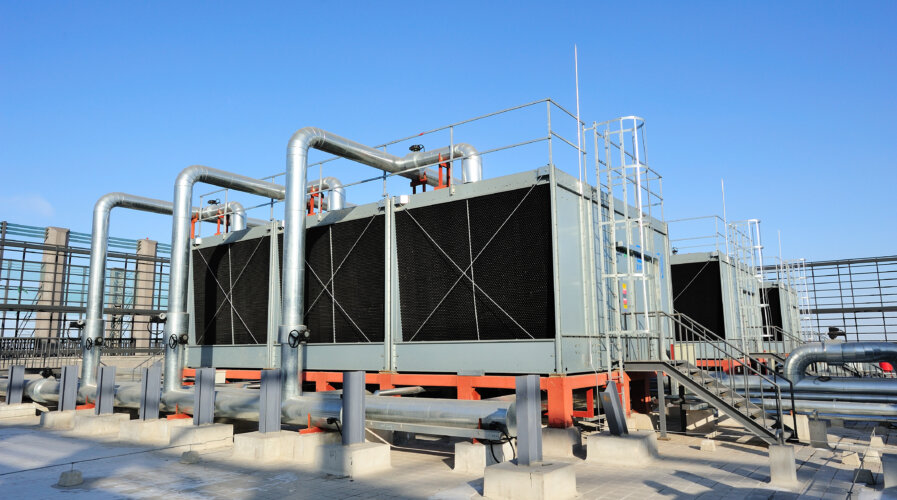
Cooling systems normally account for about 40% of total energy consumption at data centers. (Source – Shutterstock)
Singapore introduces sustainability standard for data centers in tropical climate
- The sustainability standard aims to optimize energy efficiency in data center operations.
- Singapore is the first country to join the Green Software Foundation and European Green Digital Coalition.
When it comes to data center sustainability, reducing carbon emissions is at the forefront. This includes managing cooling systems, which normally account for about 40% of total energy consumption. Data center operators would choose to operate their equipment at temperatures of 22°C and below.
Not all data center locations share the same climate. Data centers in cooler countries don’t use as much energy as those in warmer climates, where more energy is needed to operate the cooling systems.
To manage this, Singapore has launched one of the world’s first standard for optimizing energy efficiency for data centers in tropical climate countries. Announced by Singapore’s Senior Minister of State, Communications and Information, Dr Janil Puthucheary at ATxEnterprise, the standard comes after a working group comprising domain and technical experts from both industry and academia, as well as government agencies worked on establishing a set of guidelines to enable the operation of data centers at higher temperature settings while optimizing energy efficiency.
“As demand for data centres increases, energy efficiency will be critical for ensuring sustainable growth of the industry. These standards will help operators determine the best operating temperature to optimize energy efficiency, whilst safeguarding operational reliability. One data centre operator which has adopted this standard, estimated energy cost savings of SG$250,000 per year. We invite more data centre operators to use this standard to achieve greater cost savings for themselves, and to promulgate sustainability at a wider level across the data centre sector,” said Dr Puthucheary.
In Southeast Asia, there’s still demand for data centers. With more operators announcing plans to build data centers, energy efficiency is key to sustainability in the industry. Globally, there is a consensus amongst data center operators on the need for sustainable operations. There is also increased awareness that it is possible to operate data centers at higher temperatures while achieving optimal results.
There are few established industry guidelines on safely raising data centers’ operating temperatures in a tropical climate, and at higher humidity levels. Singapore’s new standard was developed against this background and following consultation with the industry.
The new standard announced by the Infocomm Media Development Authority (IMDA) aims to help data centers develop a roadmap to support the gradual increase in the operating temperatures to 26°C and above. This could lead to data centers potentially benefiting from a 2% to 5% cooling energy savings, with every 1°C increase in the operating temperature.
IMDA’s new standard forms part of the Digital Connectivity Blueprint which was launched on 5 June 2023 by Singapore’s Minister for Communications and Information, Josephine Teo. Long term, the government will chart a roadmap towards net-zero data centers that are powered by renewable energy, considering the necessary resource requirements such as land, power generating sources and green pathways.
To encourage greater adoption of the standards by data centers operating in Singapore, IMDA is working with the Building & Construction Authority (BCA) to update the Green Mark scheme for data centers, which sets the energy efficiency and sustainability benchmarks for the data center industry, with this new standard for tropical data centers.
Data center operator Digital Realty has referenced this standard and successfully increased their data center operating temperatures by 2°C at two of their 4.5 MW data halls, which translates to a reduction of approximately 2-3% total energy usage in the centers during the trial period. The Government Technology Agency (GovTech) has begun trials on higher temperatures in a government data center, as part of their sustainability initiative.
READ MORE
- Data Strategies That Dictate Legacy Overhaul Methods for Established Banks
- Securing Data: A Guide to Navigating Australian Privacy Regulations
- Ethical Threads: Transforming Fashion with Trust and Transparency
- Top 5 Drivers Shaping IT Budgets This Financial Year
- Beyond Connectivity: How Wireless Site Surveys Enhance Tomorrow’s Business Network


